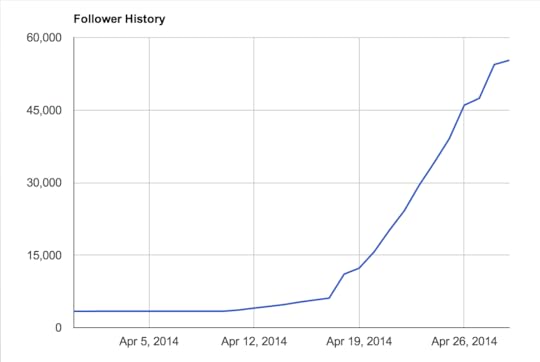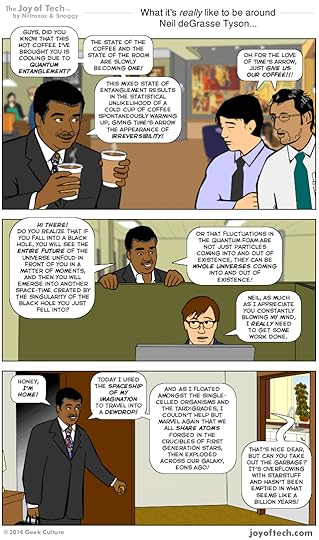Bodhipaksa's Blog, page 11
May 3, 2014
Mindfulness of Breathing: another guided meditation MP3
I’m currently co-leading a retreat with Sunada on the topic of Freeing Your Creative Potential with Meditation.
This morning Sunada led a body scan meditation, and I led a session of mindfulness of breathing. This version is loosely based on the four stage form of the practice that I normally teach, but since we were already in the swing of things thanks to Sunada’s meditation we didn’t include any counting.
The emphasis here is more on relaxing into a complete awareness of the breathing in its four-dimensional nature; that is, being aware of the full spectrum of sensations taking place in three-dimensional space, and also being aware of how the arising of sensation is changing moment-by-moment.
Related posts:
Mindfulness of Breathing: Guided Meditation MP3
Guided meditation: mindfulness of breathing
Guided Meditation: Mindfulness of Breathing
Related posts brought to you by Yet Another Related Posts Plugin.
May 2, 2014
Mindfulness of Breathing: Guided Meditation MP3
At the moment I’m on retreat at Aryaloka Buddhist Center in Newmarket, New Hampshire, just a couple of miles from where I live.
We started our formal activities with a half-hour guided meditation, just to arrive. The sit was a four-stage mindfulness of breathing, and I decided to record it in case it could benefit anyone else.
Here’s the recording:
Related posts:
Guided meditation: mindfulness of breathing
Guided Meditation: Mindfulness of Breathing
A guided meditation, and an invitation
Related posts brought to you by Yet Another Related Posts Plugin.
April 30, 2014
This particular Hindu classic sounds more fun than most

Jack is having a sleepover at his guru's ashram! It's going to be the most non-dual ever! Or is it all an illusion??
Related posts:
This is rather freaky
A guided meditation #throughglass
When Google ships V2 in exchange for a V1, do they include new lenses? My dark shades…
Related posts brought to you by Yet Another Related Posts Plugin.
“The Buddha’s Wager”
 In the 17th century, the philosopher and mathematician Blaise Pascal outlined his famous “wager,” attempting to make a case for why we should believe in God. Briefly, the wager rested on the assumption that their either is or is not a God, that no logical proof can be make for either proposition, and that believing or not believing is a coin toss that we can’t avoid making. Weighing up the consequences of the coin toss, Pascal pointed out that “If you gain, you gain all; if you lose, you lose nothing.” Therefore, he argued, we should unhesitatingly believe in God, in order that we might win an “infinity of an infinitely happy life.”
In the 17th century, the philosopher and mathematician Blaise Pascal outlined his famous “wager,” attempting to make a case for why we should believe in God. Briefly, the wager rested on the assumption that their either is or is not a God, that no logical proof can be make for either proposition, and that believing or not believing is a coin toss that we can’t avoid making. Weighing up the consequences of the coin toss, Pascal pointed out that “If you gain, you gain all; if you lose, you lose nothing.” Therefore, he argued, we should unhesitatingly believe in God, in order that we might win an “infinity of an infinitely happy life.”
Better minds than mine have picked over the premises of this wager, but we could consider perhaps that we might worship the wrong God (this is Homer Simpson’s Wager: “Suppose we’ve chosen the wrong god. Every time we go to church we’re just making him madder and madder!”). Or we could consider that God might have a thing against people who try to game his system, and might have a special place in hell reserved especially for them.
The Buddha, over 2,000 years earlier, had proposed his own wager. The wager is found in a famous discourse in which he helped a clan called the Kalamas who were confused because they encountered many spiritual teachers with conflicting messages and were unable to decide which to listen to. The Buddha’s answer is rightly famous because he told the Kalamas not to rely on conjecture, tradition, holy books, habit, and even logic. Instead, he said, they should rely on experience — evaluating experientially whether teachings, when put into practice, are praised by the wise and lead to welfare and happiness. (The wise are those, presumably, who you have observed experientially to be right about such matters.)
That’s the part that the Kalama Sutta is well-known for. The wager is found a little further on, where the Buddha tells the Kalamas that his disciples acquire four assurances in the here and now. The first two of these assurances are as follows:
If there is a world after death, if there is the fruit of actions rightly and wrongly done, then this is the basis by which, with the break-up of the body, after death, I will reappear in a good destination, the heavenly world.
But if there is no world after death, if there is no fruit of actions rightly and wrongly done, then here in the present life I look after myself with ease — free from hostility, free from ill will, free from trouble.
We’re not told why the Buddha decided to say this, but given that he was talking to a bunch of people who were skeptical and confused about the claims of spiritual teachers, it seems likely that they had asked him whether the system of practice he taught made sense if rebirth wasn’t a reality. And clearly, he thought it did.
This is of comfort to those us of who are agnostic, at best, about the likelihood of rebirth. On the one hand, I find it hard (to say the least) to imagine how consciousness could survive the death of the brain, exist independently of a body, and transfer itself to another body. On the other hand, we live in a universe where there are things like quantum entanglement and in which 95% of the matter that constitutes it is unknown, so who knows? The evidence for rebirth rests largely on supposed memories of past lives. In some cases it does seem there is such evidence, but on the other hand that evidence might be tainted by the belief systems of those conducting the investigations, especially where children are concerned.
As a result of such considerations, I describe myself as “profoundly agnostic” on the matter of rebirth, and this annoys some of my fellow Buddhists. But the Buddha himself seems to have suggested that it’s acceptable for a disciple to practice with rebirth being an open question, so I’m happy with my agnosticism. And more than that, the Buddha clearly held that belief in rebirth wasn’t necessary in order for us to experience the benefits of practice. So whether I come back (or something comes back) after death, I have this assurance, that my practice benefits me and others, right here, right now.
Related posts:
Can you have faith, but disbelieve the Buddha?
The Buddha (and his disciples) on compassion (Day 34)
“Whatever is well said is the word of the Buddha.” Maybe not.
Related posts brought to you by Yet Another Related Posts Plugin.
April 29, 2014
My favorite email of the morning started like this:
This post has been reshared 1 times on Google+
View this post on Google+
Related posts:
Funny!
Free Market Jesus speaks…
How fast can a picture spread on the internet?
Related posts brought to you by Yet Another Related Posts Plugin.
Kaboom!

The number of people following me on Google+ has grown explosively over the last 12 days or so. I suspect some of those accounts are actually robots, but still, it's quite remarkable to see such growth. The graph is courtesy of +CircleCount. ?
Related posts:
This is disturbing.?
Pretty (scary) graph
Incarceration explosion
Related posts brought to you by Yet Another Related Posts Plugin.
April 26, 2014
One can only have one's mind blown so many times in one day

One can only have one's mind blown so many times in one day
Reshared post from +Ralf Haring
http://www.joyoftech.com/joyoftech/joyarchives/1991.html?
Related posts:
Funny!
Even better than Amazon drone delivery
Free Market Jesus speaks…
Related posts brought to you by Yet Another Related Posts Plugin.
April 24, 2014
A bug with a bug in his programming
It's a good metaphor for the Buddhist notion of samsara, I suppose.?

I Can’t Stop Watching This Insect Having an Existential Crisis
According to YouTube videographer Zain the Pain, this bug played with this piece of popcorn in exactly this way for over three hours. It’s completely insane.
This post has been reshared 3 times on Google+
View this post on Google+
Related posts:
Even better than Amazon drone delivery
Funny!
Free Market Jesus speaks…
Related posts brought to you by Yet Another Related Posts Plugin.
April 16, 2014
Bringing accountability to your practice
 I’m just getting over a bad habit relating to meditation that’s plagued me for over thirty years.
I’m just getting over a bad habit relating to meditation that’s plagued me for over thirty years.
It was reading a blog post on developing good writing habits that helped me. The idea came from Brett Cooper who, like me, found that he tended to write in fits and starts, with long periods of non-writing, followed by spurts of intense production.
Two ideas came to his rescue. The first was that he realized he needed to establish “a small, non-threatening daily writing habit,” and that a goal of 100 words a day was innocuous enough to be doable.
The second idea was the realization that he needed accountability. Left to our own devices, it can be all too easy to let ourselves off too easily. So he found a friend who agreed to be his “100 words accountability partner.” The partner doesn’t have to comment on the writing or even read it. She just has to give Brett a hard time if she doesn’t receive at least 100 words of writing each day.
As it happens I had my writers’ group meeting the day after reading Brett’s article, and so I proposed that I undertook the same two practices. So two of the people in my group agreed to be my accountability partner, and I theirs. Now each of us is emailing the other two at least 100 words a day.
It’s worked great. 100 words is such a non-intimidating target that I find it easy to sit down to write, and I inevitably end up writing well over 100 words. At this rate I’ll be adding a chapter to my novel every two weeks or so. And this is after several months of producing nothing. It’s a big turn-around.
Now, when it comes to meditation, I’ve been meditating daily for a long time. I’ve hardly missed a day in the last two years or so. But my sits have at times become very short — sometimes just five or ten sleepy minutes at the end of the day. And although it’s better to do five or ten sleepy minutes than to do nothing, that’s far from ideal. Five minutes was supposed to be an emergency provision for those days when I genuinely didn’t have time for a longer sit, but it threatened to become my default. It’s as if I hit 100 words and then stopped in mid-sentence.
The bit that was missing from my meditation practice was accountability. This is where my long-standing bad meditation habit comes in; I’ve always resisted accountability.
I’ve often resisted meditating with others, or following set schedules, or even using apps like the Insight Timer, which announces to other app users how much meditation you’ve done. I think the reason I’ve resisted these things is that I’ve wanted to be sure that my desire to meditate was coming from me, and not from a desire to fit in, or to gain acceptance from others, or to show off. And while it’s good to want to meditate because it’s what I really want to do, I think that habit has long outlived its usefulness. It’s led to what’s almost a kind of secretiveness about how much meditation I’m doing, and that’s not good. Bad habits flourish in the dark.
So I decided that as well as my commitment to daily meditation practice (with an emergency fall-back position of five minutes a day) I needed a commitment to sharing what I do, so that I hold myself accountable. So on Wildmind’s community on Google+, I’ve been sharing how long I’ve been sitting, and what I’ve been doing.
This has already made a difference. When I meditate in the evening, which is often the first opportunity I have to meditate, I’m sitting earlier rather than later, when I’m often tired. I’m sitting for longer. And I’m being more mindful of the effort I make in my practice.
And the great thing is that I still have the feeling that I’m doing all this for me, not to please other people, so that fear has gone. I’m glad to have left that old habit in the past, where it belongs.
Related posts:
What animal trainers can teach you about establishing a daily meditation practice
Day 100: Just do it
Hit the ground sitting! Day 6 of our 100 Day Meditation Challenge
Related posts brought to you by Yet Another Related Posts Plugin.

April 2, 2014
A very ugly moment in American history

A very ugly moment in American history
Reshared post from +Susan Stone
Related posts:
"The rules are: I go first, and I refuse to take my turn
Funny!
Free Market Jesus speaks…
Related posts brought to you by Yet Another Related Posts Plugin.




